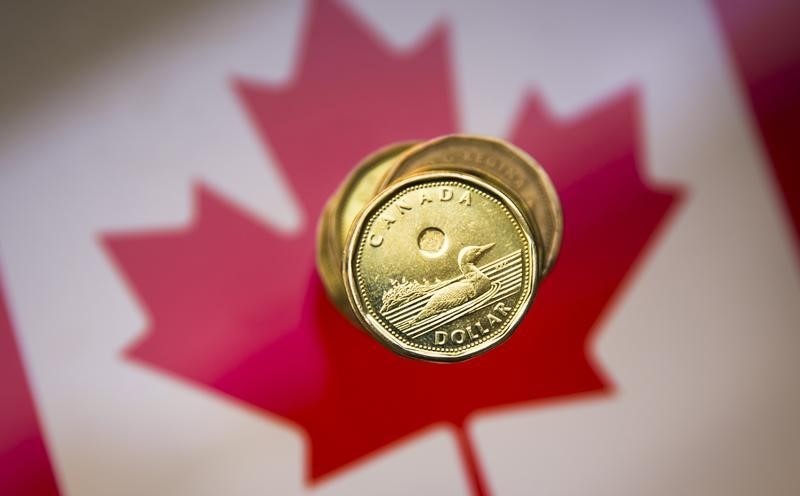* Canadian dollar at C$1.2481, or 80.12 U.S. cents
* Bond prices higher across the maturity curve
* Touches two-year high of C$1.2414, or 80.55 U.S. cents
TORONTO, July 27 (Reuters) - The Canadian dollar touched a new two-year high against the greenback on Thursday before slipping in the wake of a slew of U.S. data that indicated an acceleration in growth during the second quarter.
The Canadian dollar rallied on Wednesday after the U.S. Federal Reserve issued a more dovish policy statement that left interest rates unchanged but addressed concerns about weaker inflation more explicitly than in the past. Fed's tweaked language on inflation sparked investor concerns about U.S. economic growth and drove the U.S. dollar index .DXY , which measures the currency against six key counterparts, to a 13-month trough.
U.S. data on Thursday showed that while new orders for key U.S.-made capital goods unexpectedly fell in June, shipments increased for a fifth straight month. Other data showed a sharp narrowing in the goods trade deficit last month and increases in both retail and wholesale inventories. 9:29 a.m. EDT (1329 GMT), the Canadian dollar CAD=D4 was trading at C$1.2482 to the greenback, or 80.12 U.S. cents, down 0.3 percent. The currency traded between C$1.2414, its strongest level since late June 2015, and C$1.2496.
Analysts are skeptical the Canadian dollar will be able to strengthen much further, with expectations the Bank of Canada will raise interest rates one more time this year already fully priced into the market. With a lack of domestic drivers this week, the currency has taken its cues from the U.S. dollar.
A combination of a soft greenback, strong Canadian economic data and rate hike expectations have propelled the loonie some 10 percent higher over the last three months.
Prices of oil, a key Canadian export, have also climbed to near eight-week highs, though analysts note that the traditional correlation between the currency and oil has broken down recently.
Canadian government bond prices were mixed across the maturity curve, with the two-year CA2YT=RR price flat to yield 1.292 percent and the benchmark 10-year CA10YT=RR falling 5 Canadian cents to yield 1.974 percent.
The Canada-U.S. two-year bond spread stood at -7.5 basis points, while the 10-year spread was at -34.2 basis points.
